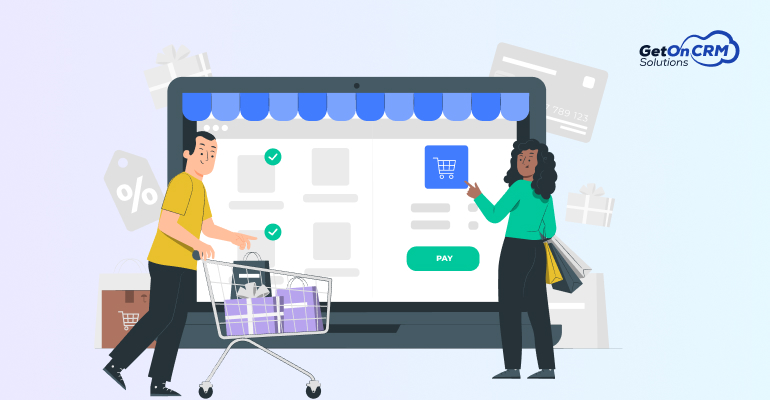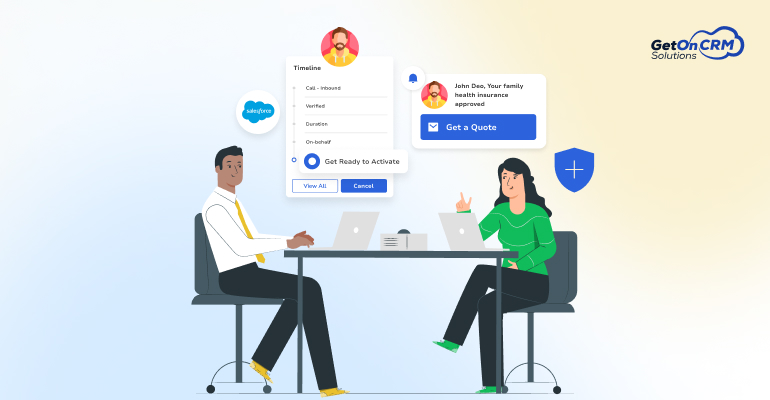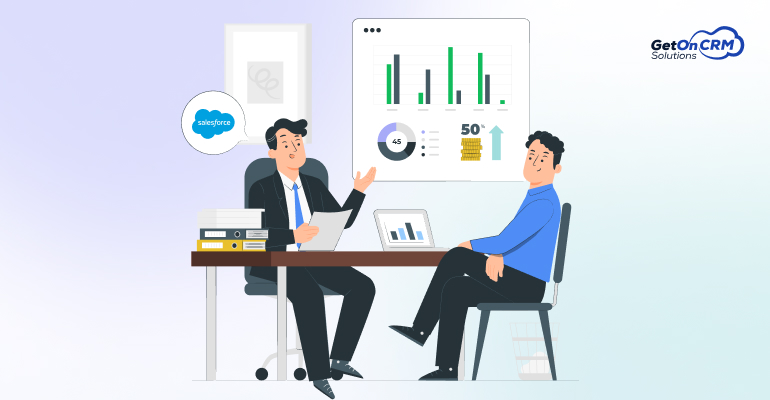Retail is extremely competitive, so businesses must always find ways to stay ahead. One notable development in retail has been omnichannel shopping experience transformation – this approach seamlessly links online and offline channels and provides customers with a cohesive shopping experience.
One tool that has played an essential role in this transformation has been Salesforce, a comprehensive customer relationship management (CRM) platform. Salesforce’s robust features and flexibility have proven essential in the retail sector by helping businesses stay abreast of changing customer expectations and market dynamics.
Understanding the Omnichannel Landscape
The Evolution of Retail
Since brick-and-mortar stores were the sole shopping destinations, retail has come a long way. According to the U.S. Department of Commerce, online sales accounted for 21.3% of total retail sales in 2020 – an increase from 16% in 2019; this trend highlights how important online shopping has become in our lives.
Technological advances have propelled us into an age of omnichannel retailing – combining physical and digital shopping experiences – allowing customers to shop anytime, anywhere, on any device for added convenience. Retailers offer customers these shopping services now more than ever!
Key Characteristics of the Omnichannel Era
Several key factors characterize omnichannel retailing. First, it provides a seamless customer experience across multiple channels, ensuring customers can effortlessly switch from one channel to another. Whether browsing products online and purchasing in-store, or vice versa, the customer experience remains consistent and fluid.
Another characteristic of the omnichannel era is the integration of online and offline touchpoints. Digital and physical shopping experiences are no longer distinct but interconnected.
Data-driven decision-making is another significant aspect of the omnichannel era. Retailers can leverage data from various sources to gain insights into customer behaviour, preferences, and buying patterns.
Lastly, personalization and customer engagement have taken centre stage. Omnichannel retailers tailor experiences to individual customer preferences, enhancing customer satisfaction and loyalty.
The Emergence of Omnichannel Marketing
In the past, retailers employed a multichannel approach, operating various channels independently. However, as digital advancements and consumer expectations evolved, so did the marketing strategies. Omnichannel marketing, a holistic strategy integrating various marketing channels to provide a unified customer experience, has replaced multichannel marketing.
“Omnichannel retail is about delivering a consistent, customer-focused experience across all channels and touchpoints,” says Marko Kovac, CEO of Salespod. “It’s not just about being present on all channels, but about ensuring those channels work together seamlessly.”
Advantages of Omnichannel Marketing
Studies show that omnichannel customers spend, on average, 4% more in-store and 10% online when compared with single-channel customers, and each additional channel they utilize increases this spend significantly; those using four or more channels spent 9% more overall when compared with those who only utilized one channel.
Omnichannel marketing brings more benefits than increased sales alone; personalized messaging through this approach resonates well with modern consumers -; according to Accenture’s study, 91% were more likely to patronize brands that provide them with offers and recommendations relevant to them.
Implementing Omnichannel Marketing Strategies
Developing an effective omnichannel strategy requires strategic thinking and robust technical support. First, understand your customer journey, map out all customer touchpoints, and ensure consistency across all channels. The customer journey should be fluid, allowing customers to shift from one channel to another without disruption.
The Role of Technology in Omnichannel Marketing
Technology plays a central role in successfully executing an omnichannel marketing strategy, helping integrate various channels, gather and analyze data, automate tasks and personalize customer experiences. A report by Boston Retail Partners showed that 56% of retailers planned to implement one unified Platform by the end of 2020 to increase their omnichannel capabilities.
Salesforce as a Solution for Omnichannel Success
Salesforce, a global CRM platform, aims to facilitate business relationships and customer interactions for companies of all types and sizes. It offers sales, service, marketing and commerce features that help organizations gain a comprehensive view of their customers.
Salesforce in the Retail Industry
Salesforce has become an indispensable asset to retailers, helping them manage customer interactions more efficiently, provide personalized shopping experiences, automate marketing campaigns, manage inventories more effectively, and gain insight into customer behaviour.
Salesforce allows retailers to track customer behaviour across channels and deliver personalized content, improving the customer experience. GetOnCRM Solutions has an expert team that understands Salesforce’s capabilities to assist businesses in implementing these strategies more efficiently so that the right messages reach the right customers at the right time.
Leveraging Salesforce for Omnichannel Success
Sales and Marketing Integration
Salesforce’s integration capabilities help retailers align their sales and marketing activities. Retailers can use Salesforce for lead generation and nurturing, ensuring potential customers are engaged at every customer journey stage.
In the realm of marketing, Salesforce enables automation and campaign management. For example, a pet retailer utilized Salesforce Marketing Cloud to automate personalized emails based on customer behaviour and saw a 12% increase in open rates.
Customer Experience and Engagement
Salesforce helps retailers create personalized customer experiences across channels. It allows businesses to track customer interactions, preferences, and purchase histories, tailoring experiences that resonate with individual customers.
Additionally, Salesforce’s service capabilities enable efficient customer service and support. Case in point, A FMCG company utilized Salesforce Service Cloud to streamline their customer service processes, resulting in a 35% decrease in response time.
Inventory Management and Order Fulfillment
Salesforce provides retailers with powerful inventory tracking and optimization capabilities, enabling them to monitor inventory in real-time and quickly meet customer demands.
Salesforce can streamline order management and fulfilment processes from order capture through delivery. One furniture company used Salesforce to improve their order management process and experienced a 20% decrease in processing time for orders processed through it.
Analytics and Reporting
Salesforce provides retailers with robust analytics tools that enable data-driven decisions. Businesses can use these tools to track and measure omnichannel performance metrics, helping identify areas for improvement and optimize strategies.
Creating a Seamless Shopping Experience with Salesforce
Salesforce Commerce Cloud provides various features that help retailers create a seamless customer shopping experience. From personalizing product recommendations based on a customer’s browsing and purchase history to enabling buy-online-pick-up-in-store (BOPIS) options, Salesforce supports retailers in providing a consistent shopping experience across channels.
Personalizing the Customer Journey with Salesforce
Salesforce employs artificial intelligence (AI) to deliver customized customer experiences through its Einstein platform. Einstein analyzes customer data, uses predictive analytics, and provides product recommendations or anticipates future behaviour to deliver tailored marketing messages and personalized service experiences for its users.
Also Read: How To Optimize The Implementation Of The Salesforce Service Cloud?
Customer Retention through Omnichannel Marketing with Salesforce
An effective omnichannel strategy can dramatically boost customer retention rates. Salesforce allows retailers to monitor customer interactions across multiple channels, providing insight into customer behaviour and preferences. Businesses can then utilize GetOnCRM Solutions’ insights for formulating effective customer retention strategies that strengthen relationships while driving business growth.
Measuring the Success of Your Omnichannel Marketing Strategy
Evaluating an omnichannel strategy’s success is vital, with key metrics like customer retention rate, lifetime value and conversion rates across various channels providing valuable insights. Salesforce offers various analytics tools that can assist retailers in tracking these metrics to assess the performance of their omnichannel marketing strategy.
Best Practices for Omnichannel Marketing
Successful omnichannel marketing entails combining strategy, technology, and customer-centricity into an effective campaign. Here are a few best practices:
Consistency: Maintain uniform customer experiences across all channels, whether online, in-app, or physical store.
Integration: Customer journeys typically include multiple touchpoints; it is vital for an optimal experience that integration occurs seamlessly across these touchpoints.
Personalization: Leverage data to deliver tailored experiences for customers. Customers value personalized interactions and will likely remain loyal to brands that make an effort.
Ongoing Optimization and Improvement
Continuous Optimization
Implementing Salesforce is not a one-off task but an ongoing journey of improvement. Retailers who utilize this Platform may discover new ways to optimize workflows, enhance customer interactions and marketing strategies – their success depends on continued use.
Gathering Feedback and Making Improvements
Feedback from employees using Salesforce and customers using it should be an integral component of continuous improvement efforts. Feedback can reveal areas of inefficiency or dissatisfaction that can be addressed to optimize results for both parties involved.
Utilizing Salesforce’s powerful analytics tools, retailers can gain actionable insight into customer behaviour, preferences, and trends – helping guide ongoing sales, marketing, and service improvements.
Leveraging the Salesforce Ecosystem
Salesforce has a vast ecosystem of apps and integrations available on their AppExchange. These can extend the functionality of Salesforce and provide tailored solutions for specific retail needs. Retailers should regularly review and incorporate these tools to ensure they leverage Salesforce to its full potential.
Future Outlook: Salesforce in Retail
The retail industry’s future is increasingly digital, and Salesforce is set to play a crucial role in this evolution. Here’s a glance at what we might expect:
AI-Driven Personalization
Artificial Intelligence (AI) is making waves in retail, and Salesforce is at the forefront of this revolution. Leveraging Salesforce Einstein, built directly into their Platform, retailers can deliver hyper-personalized experiences, predictive journeys and automated insights like never before.
Omnichannel Retailing
As we look forward, online and offline retail lines will continue to blur, and omnichannel retailing will become the new norm. With its extensive suite of tools and features, Salesforce is ideally positioned to help retailers navigate this shift and create seamless, integrated shopping experiences across channels.
Customer Experience
With its robust customer-centric tools and capabilities, Salesforce will likely continue transforming how retailers interact with their customers. In the future, we can expect even more emphasis on creating personalized, engaging, and convenient customer experiences.
Also Read: Revolutionizing Customer Relationships With A Salesforce Digital Experience Platform
Conclusion
In an increasingly digital world, Salesforce has emerged as a vital tool for success in the retail industry. From enhancing customer experiences to improving operational efficiency, Salesforce empowers retailers to adapt and thrive in omnichannel. While implementing Salesforce is not without its challenges, with proper planning, ongoing optimization, and a commitment to continual learning, retailers can leverage Salesforce to its full potential and reap the rewards.
As a Salesforce Silver Consulting Partner, GetOnCRM Solutions offers an extensive range of services to support retailers in their Salesforce journey. We provide comprehensive solutions, from initial implementation and user training to ongoing optimization and future-proofing. Our team is committed to helping businesses unlock the full potential of Salesforce, ensuring they can reap the rewards of this robust Platform.



















